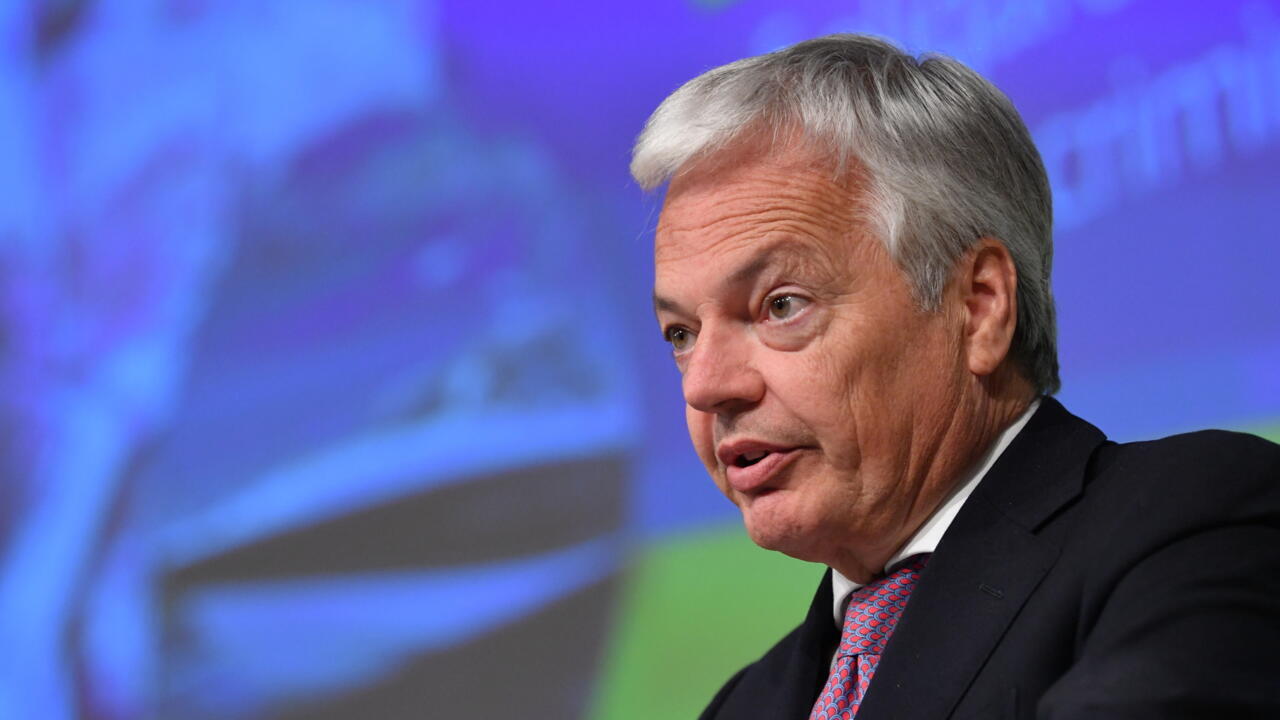War in Ukraine: EU freezes 17 billion euros in assets of Russian oligarchs and entities
Some 17 billion euros in assets of Russian oligarchs and entities have been frozen in the European Union, across seven Member States, following sanctions against Russia in response to the war in Ukraine, announced on Saturday October 29 the European Commissioner for Justice Didier Reynders.
AFP - JOHN THYS
Text by: RFI Follow
2 mins
Seventeen billion euros is the new balance sheet of Russian assets frozen in the European Union announced by the European Commissioner for Justice Didier Reynders in an interview with the media of the German group Funke, including the daily Westdeutsche Allgemeine Zeitung.
In his exchanges with the press, the European commissioner also announced some ideas for the use of these assets.
Advertising
Read more
These 17 billion euros come from the assets of 90 Russian oligarchs and entities in 7 countries of the European Union.
Of which 2.2 billion only in Germany.
In July, this amount was estimated at 13.8 billion euros.
The result of eight sets of sanctions against Russia in response to the invasion of Ukraine.
"
We are studying what more can be done
," said Didier Reynders in his
interview with the German press
.
In September, he complained about the inaction of some EU states, Hungary in the lead.
Since the invasion of Crimea in 2014, 1,236 people and 115 entities have been subject to asset freezes and entry bans on European territory.
On this list are President Putin, his Minister of Foreign Affairs, members of the Duma and even oligarchs.
How will these funds be used?
"
If it is criminal money that the European Union confiscates, it is possible to channel it to a compensation fund for Ukraine
," said the European Commissioner.
However, the general confiscation of funds currently clashes with different legislation within the EU.
A sum which would also be insufficient to finance the reconstruction, estimated at at least 600 billion euros.
300 billion euros of foreign exchange reserves of the Russian Central Bank already frozen
Western sanctions have also led to "
the freezing of 300 billion euros
" of foreign exchange reserves of the Russian Central Bank in the world, an amount which could be used as "
guarantee
", estimated the commissioner.
For Didier Reynders, these funds could at least be used as a “
guarantee until Russia voluntarily participates in the reconstruction of Ukraine
”.
A list of sanctions taken by the EU which has important consequences for the Russian economy.
An analysis by the World Bank and the OECD estimates that Russian GDP is expected to fall by more than 5% in 2022, by 9% in the worst-case scenario.
The country is also affected by high inflation.
Newsletter
Receive all the international news directly in your mailbox
I subscribe
Follow all the international news by downloading the RFI application
Russia
European Union

